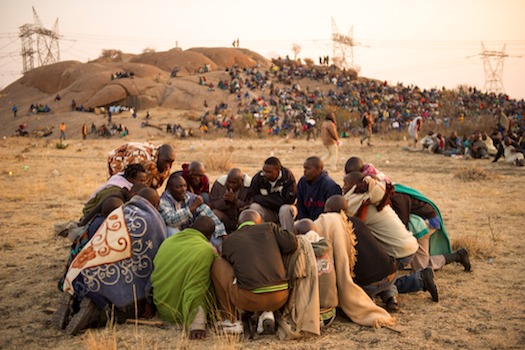- About
- Topics
- Story
- In-Depth
- Picks
- Opinion
- News
- Donate
- Signup for our newsletterOur Editors' Best Picks.Send
Read, Debate: Engage.
| June 23, 2016 | |
|---|---|
| topic: | Transparency and Corruption |
| tags: | #South Africa, #Taxi, #Uber |
| located: | South Africa |
| by: | Shasha Seakamela |
Uber is one of the world's biggest car companies by market share. The San Francisco-based company allows users to summon taxi-like services online using their smartphones. The company that has expanded rapidly into roughly 150 cities around the world has, however, from its early days faced regulatory battles and court injunctions in different countries. Taxi drivers in many countries across the world have protested against Uber.
Here in South Africa, the taxi industry is a multi-million dollar business that is lauded as an entirely black-owned collective. The South African government, so as to bring the industry into the mainstream of the formal economy, is increasingly regulating the drivers and owners. However, currently drivers and their bosses claim government officials are sidelining them by going ahead with the registering and licensing of Uber drivers.
“They didn’t go through the Metered Taxi Council. When you apply for the permit, you must go through the Metered Taxi Council. They jumped us; they did everything with the department of transport. That is why we are fighting,” said Taxi owner Ronnie Moremi.
It is not surprising to see the current uprising in Johannesburg against Uber. Worldwide, Uber has repeatedly made the headlines for the wrong reasons. The headlines are over incidents involving its drivers, who are not technically Uber employees. Uber also was criticised by those who believe it does not necessarily conduct background checks on its drivers, in the worst case allowing murderers, sexual offenders and thieves to become Uber drivers.
In 2014 in Germany, a regional court issued a temporary injunction against Uber, saying its drivers lacked the necessary commercial permits, potentially barring the company from operating in cities across the country.
Barrett, an Uber driver in Tennessee said, “trying to get in touch with a human at Uber can be difficult, even as a driver. You get lost in the corporate hierarchy. I don’t even know who would fire me if I had a bad rating or I had an incident.”
It is clear that well-regulated markets with consumer protection prove to be very difficult for Uber to conquer. It is perhaps tougher for Uber to operate in developed countries, which makes developing countries an easy target.
“Uber’s UberPop service has been banned in multiple other locations in Europe, including France, Belgium, Italy, Spain and the Netherlands (although Uber has continued to operate the service in some markets, flouting court rulings)," said Dieter Schlenker, Taxi Deutschland’s chairman.
"Meanwhile in the U.K., London’s transport regulatory body is currently consulting on proposed changes to regulations governing private hire vehicles which could result in strict new limits on how Uber can operate in the city next year.”
Uber clocked 2 million rides in South Africa in the first six months of 2015. Those who live in Johannesburg wouldn’t be surprised by Uber’s popularity. Despite being essential for getting around, metered taxis in Johannesburg are very expensive. On the one hand, local commuters often complain about the unregulated prices of metered taxis around the city and cite it as a rip-off. While Uber, on the other hand, has resisted most of the government’s overtures to date, saying that they are just a technology network company and the regulations need not apply to them.
“When Uber came in they took over all the clients. There’s nothing wrong with Uber if they are regulated and have the same prices as us. Remember, we are regulated and Uber is not part of that. They make their own prices. We charge 10.50 rand a kilometre, whereas Uber is charging 6 rand,” said one of Zebra Cabs drivers based in Johannesburg.
Perhaps Uber’s existence and popularity in Johannesburg is testament to the failings of the metered taxi industry to meet customer demands. This is also a clear indication that the metered taxi industry is in dire need of reform. However, there must be fairness in fare structures, vehicle inspections, and other matters in order to place both Uber and metered taxis on a level playing field.
By copying the embed code below, you agree to adhere to our republishing guidelines.
